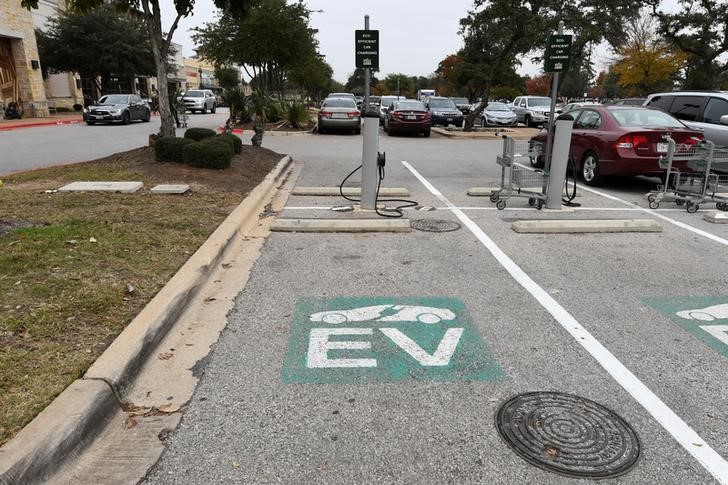By David Shepardson
WASHINGTON (Reuters) - A compromise Republican tax bill released late Friday does not eliminate a $7,500 electric vehicle tax credit as Republicans in the U.S. House of Representatives had previously proposed.
The measure follows the lead of the Senate version approved last month that did not eliminate the credit. Killing the credit could have hurt automakers like General Motors Co (N:GM), Volkswagen AG (DE:VOWG_p), Tesla Inc (O:TSLA) and Nissan Motor Co (T:7201).
Consumers under current law are eligible for a $7,500 tax credit to defray the cost of plug-in electric vehicles. The electric vehicle tax credit starts to phase out after a manufacturer sells 200,000 plug-in vehicles. After an automaker hits that point, the $7,500 tax credit is still available for at least three more months before phasing out.
Consumers are currently allowed to take the credit on vehicles until the manufacturer hits 200,000 plug-in vehicles sold. Electric vehicles have expensive batteries that make them pricier than gasoline-powered vehicles.
The Electric Drive Transportation Association said in a statement late Friday it was pleased the credit would remain in law. "The credit supports innovation and job creation while helping drivers access advanced vehicle technology," the group said.
More than 50 automakers and other companies and groups released a letter earlier this week urging Congress to retain the credit, including Ford Motor Co (N:F), BMW AG (DE:BMWG), GM, Uber Technologies Inc.
Former President Barack Obama repeatedly proposed hiking the tax credit for electric vehicles to $10,000 and converting it to a point-of-sale rebate, but Congress did not approve the measure.

Automakers face mandates from California and a dozen other states to produce a rising number of zero-emission vehicles and have said the credits are essential to meeting requirements.